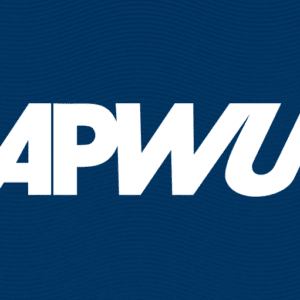March 30, 2007
Employee Free Choice Act Introduced in Senate
One of the most important labor law reform measures in decades was introduced in the U.S. Senate March 29 — legislation that would give American workers greater freedom to make their own choices about joining unions and bargaining for better wages, benefits, and working conditions.
Sen. Edward Kennedy and 46 co-sponsors introduced the Employee Free Choice Act (S. 1041), a bill that would stiffen penalties for harassment, intimidation, and other illegal tactics employers often use to prevent workers from having a voice at work.
The bill also would recognize workers’ freedom to form unions when
a majority of employees sign forms designating a union as their bargaining representative. This “card-check” process is permitted under current law, but only if the employer agrees. Most employers currently force workers to undergo an election administered by the National Labor Relations Board (NLRB), which in recent years has consistently ruled against pro-union workers.
“In 2005 alone, more than 30,000 workers were illegally fired or retaliated against for attempting to exercise their right to have a union in their workplace,” Kennedy said on the Senate floor. Employers seeking to avoid unionization “shut down whole departments – or entire plants – to avoid negotiating a union contract,” the Massachusetts Democrat added. “It’s illegal and unacceptable, but it happens every day.”
The Senate EFCA bill mirrors a House version passed March 1 by a 241–185 vote.
The AFL-CIO will launch a campaign to rally support for passing the EFCA in the Senate during the spring recess, April 2-9. Urging APWU members to get involved, union President William Burrus said, “We must help ensure the right to bargain for better pay, benefits and job security to all brothers and sisters in the private sector.” He encouraged APWU members to join with other workers across the country — making phone calls and sending letters to thank their senators for co-sponsoring the legislation, or to urging them to sign on. (Click here to see if your senator is a co-sponsor. Click here to take action.)
Earlier in the week, the Senate Health, Education, Labor and Pensions Committee held a hearing on the EFCA. Errol Hohrein, a worker at the Front Range Energy ethanol plant in Windsor, CO, told the panel that after his company had ignored workers’ warnings about dangerous working conditions, and reneged on the promises of wage increases and improved health benefits, he and other workers tried to form a union. Ninety percent of the workers signed cards indicating they wanted to join the United Steelworkers.
Rather than honor the workers’ decision, Front Range managers harassed and threatened employees with job loss, Hohrein said. Speaking at the March 27 hearing, Hohrein reported:
“They forced us to attend meetings where they slammed the union and hardly let us say anything…. The company questioned everyone on how they were going to vote. They took them into backrooms and browbeat them.… They would follow me around the workplace and not permit me to talk to my co-workers…during the election they stood at the door of the break room where we were voting as a silent reminder of their threats.”
The company subsequently fired Hohrein for his union activity.
“I’m no troublemaker. I served my country in Vietnam. I’ve worked with youth as a junior high school teacher; my wife is a special education teacher. I have one flaw and that’s telling the truth,” Hohrein said.
“Labor law in this country is broken, it doesn’t support working people,” he added. “We’re on the brink and no one’s looking out for us. It’s time for the government to do the right thing and pass the Employee Free Choice Act.”



